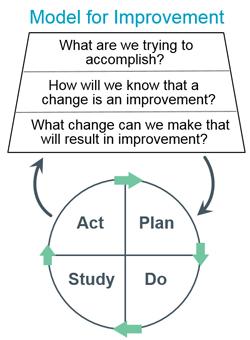Cohen, M. (2016). Medication Errors (Miscellaneous). Nursing, 46(2), 72.
This article was first published in 1994 and has undergone several publications and revisions and the latest version was published in 2006. The author, Cohen, outlines guidance to healthcare providers in any area. The book can assist providers in both acute and long-care environments. It can help patients receive safer medications as the medical staff collectively works on the Six Sigma performance level (Cohen, 2016). In addition, the book outlines the key safety measures that need to be implemented at their priority levels in healthcare setups. The key efforts that should be taken focus on the dispensation, prescription, and administration of medication to reduce errors and improve patients’ confidence in the system.
Institute for Healthcare Improvement. (2017). Improve Core Processes For Administering Medications. Web.
This report outlines ways of improving the processes in the administration of medication in the healthcare system. The author, Institute For Healthcare Improvement, uses a model that provides a framework and acts as a guideline for work improvement. The association of process improvement has designed the model, and it is a tool that accelerates improvement in healthcare and eliminates medication errors. The framework boosts other prior models in medical improvement. It accelerates the provision of key services by reducing the losses and errors resulting from inefficient processes (Institute for Healthcare Improvement, 2017). This model is shown in Figure 1 below.

Besides providing the model, IHI suggests various changes needed to improve a healthcare setup. An organization should continuously select, test, and implement the key changes as a vital element for accelerating the medical provision and reducing errors. These changes act as the key potential intervention approaches in any healthcare system. Once the model has been set up and the changes tested and implemented, the team should try PDSA (Plan-Do-Study-Act) cycle, which enables them to test the changes and see whether results arise from the improvements (Institute for Healthcare Improvement, 2017). The association for improvement further suggests that once the cycle has been tested and improvement realized, there should be regular tests until a healthcare provider is confident of the operations of the processes.
Schmidt, K., Taylor, A., & Pearson, A. (2017). Reduction of Medication Errors: A Unique Approach. Journal of Nursing Care Quality, 32(2), 150-156.
The journal provides tools and suggests a process for estimating the risks involved in the healthcare system. The ST-PRA tool focuses on the process’s separate areas and combines steps that can fail the medical system. The journal further offers literature that outlines the goals of developing alternative processes to reduce medication errors. As medication errors are on the rise, further investigation should take place in children’s hospitals to assess whether they create models that facilitate improvements and help decrease the risk of medication and fluid errors. In addition, the authors note that about 35% of the errors occur regularly and are very severe and threaten patients’ lives (Schmidt et al., 2017). In conclusion, this journal advocates establishing a process that can investigate the way medication administration affects human life and provide methods for improving the safety of the medication and reducing errors.
Summary
In summary, medication is effective when healthcare providers can offer prescription, dispensation, and administration to patients safely and appropriately. All three pieces of the literature analyzed suggest that various mechanisms should be undertaken to provide prompt and accurate healthcare. When medication is offered unlawfully, it can reduce the quality and confidence of the organization in the community. Hence, the right drugs, dosage and strength of medicine should be administered to the patients routinely. To reduce medication errors, hospitals should establish effective interventions for providers and healthcare system users.
References
Cohen, M. (2016). Medication Errors (Miscellaneous). Nursing, 46(2), 72.
Institute for Healthcare Improvement. (2017). Improve Core Processes For Administering Medications. Web.
Schmidt, K., Taylor, A., & Pearson, A. (2017). Reduction of Medication Errors: A Unique Approach. Journal of Nursing Care Quality, 32(2), 150-156.